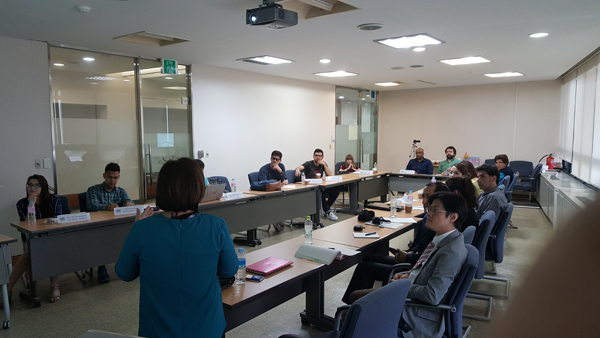
On Saturday, June 11th 2016, CityNet delivered a session as part of Seoul Module of the Executive Master in Innovative Governance of Large Urban Systems (IGLUS).
During the session, Sayel Cortes and Heesoo Joo from CityNet presented and discussed on the differences and similarities of smart cities in Asia. Two guest speakers from CityNet’s active member cities, Mr. Naoki Otomo from Yokohama City and Ms. Violeta Seva from Makati City brought their own perspectives on what a smart city is.
Being a smart city doesn’t mean to use top technology, but to use technology in a smart way. By providing examples on the way different cities in Asia are using technology and discussing on their different approaches, challenges, and advantages; this session aims to get participants to reflect on the key considerations needed when implementing a system in their cities.
The basic assumption is that each city has a different context, and that technology has to be fully adapted to this context to produce “smart” results. According to this, the newest or “best” technology might not be the appropriate answer for a specific city challenges. On the other side, simpler “low-tech” solutions might provide smart solutions for a specific city challenge.
This executive master program offered by the Ecole Polytechnique Fererale de Lausanne consists of 6 modules in 6 different cities covering six key challenges of urban development. The Seoul module, locally supported by Sungkyunkwan University, focuses on the technological challenge by inviting experts from different Korean universities, research centers, local government, and international organizations.

